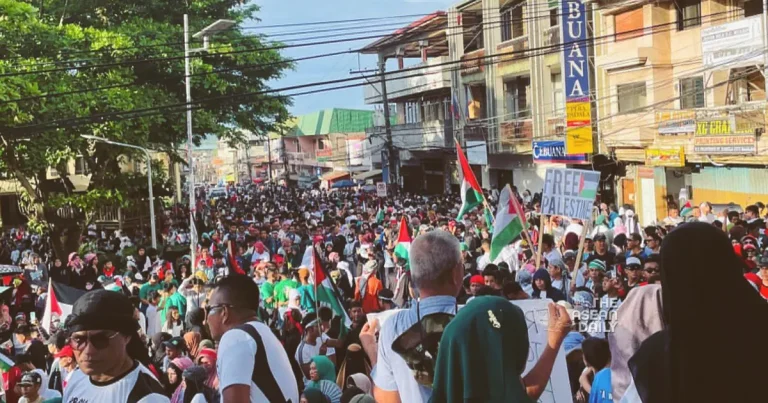7-10-2024 (SINGAPORE) One year on from the outbreak of hostilities in Gaza, the reverberations of the conflict continue to be felt across Southeast Asia, a region with a significant Muslim population deeply sympathetic to the Palestinian cause. The impact, however, extends far beyond religious affiliations, affecting businesses, public opinion, and governmental policies throughout the region.

The conflict, ignited by Hamas’ attack on Israel on 7 October last year, has evolved into a prolonged siege on Palestinians, with violence threatening to spill over into neighbouring countries. This escalation not only endangers lives but also poses risks to economic stability, particularly concerning oil prices and global inflation.
For countries like Thailand, whose citizens work on Israeli farms alongside those from India and Nepal, the expanding conflict presents a new threat. Thailand has already suffered significant losses, with over 40 of its nationals killed and six still missing after being abducted by Hamas.
In Singapore, where social harmony is paramount, the government has taken a firm stance by prohibiting public demonstrations related to the conflict and warning against displaying associated symbols. Despite these measures, calls persist for the city-state to sever its defence ties with Israel.
The leaders of Muslim-majority nations Malaysia and Indonesia have been outspoken in their condemnation of Israel’s actions, which have resulted in over 40,000 Palestinian deaths, predominantly civilians, according to UN figures.
The ongoing carnage has sparked a wave of activism and creative expression across the region. In Malaysia, graphic designer Arif Rafhan Othman has released artworks blending traditional Malaysian batik designs with Palestinian symbols, aiming to keep the conversation alive and educate people about the conflict’s history.

The war has also triggered significant economic repercussions. Many Malaysians have altered their spending habits, boycotting US-linked chains such as Starbucks and McDonald’s. Berjaya Food, the franchise holder for Starbucks in Malaysia, reported a substantial loss of 91.5 million ringgit (US$21.9 million) in the year to August. McDonald’s has sought legal action against boycott organisers, claiming 6 million ringgit in damages.
Malaysian Prime Minister Anwar Ibrahim has made the Palestinian cause a cornerstone of his foreign policy, criticising Western stances and openly supporting Hamas. This position has resonated with many Malaysians, who have engaged in both public rallies and online activism to champion the Palestinian cause.
In Indonesia, similar boycotts have affected businesses, with KFC Indonesia reporting a net loss of US$21.5 million in the first quarter of this year. The Indonesian Ulema Council has urged citizens to continue their boycott efforts, framing it as a moral imperative to support Palestinian independence.
For Palestinians living abroad, the relentless violence is a source of deep anguish. Raed Arada, a Palestinian student at the University of Indonesia, speaks of the difficulty in focusing on his studies while constantly worrying about his family’s safety back home.
Singapore’s approach to the conflict reflects its multicultural balancing act. While imposing strict regulations on protests, the government has faced challenges from activists pushing for an end to arms trade with Israel. The city-state’s longstanding military partnership with Israel has come under scrutiny, with a recent petition garnering nearly 2,000 signatures in a single day.
As the conflict enters its second year, its impact on Southeast Asia continues to evolve, challenging governments, businesses, and individuals to navigate the complex interplay of geopolitics, economics, and social cohesion. The region’s response to this ongoing crisis underscores the global nature of the Gaza conflict and its far-reaching consequences beyond the immediate war zone.




